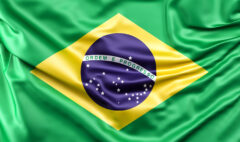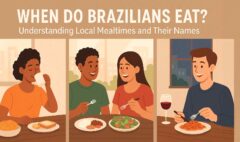Slang, Memes, and More: Informal Portuguese on Social Media
Slang, Memes, and More: Informal Portuguese on Social Media
Introduction to Informal Portuguese Online
Why Social Media Language Matters
Let’s face it—no one talks like a textbook on Instagram or TikTok. If you want to understand how Brazilians really speak, you have to dive into their social media. That’s where the real language lives—colorful, informal, and constantly changing.
Evolution of Portuguese in Digital Spaces
Just like in English, the way Portuguese is used online has evolved. Emojis, abbreviations, and hashtags have turned into a unique dialect of the internet. It’s fast, funny, and sometimes confusing—but also an amazing way to connect with modern Brazilian culture.
Understanding Brazilian Internet Slang
The Role of Slang in Digital Identity
Slang is more than just shorthand. It’s a marker of belonging. When you use the right phrase or laugh the right way (yes, even online), you show you’re part of the tribe.
Most Common Brazilian Slang on Social Media
“Top”
Simple, effective. It just means something is amazing. “Esse filme é top!” = “That movie is awesome!”
“Migo/Miga”
A cute way of saying “amigo” or “amiga” (friend), usually used in a funny or dramatic way. “Miga, sua louca!” is a common phrase meaning “Girl, you’re crazy!”
“Tô passada!”
Literally “I’m passed,” but it means “I’m shocked!” or “I can’t believe it!”
“Cringe”
Borrowed from English, but with a new twist. Brazilians use it to judge outdated or embarrassing behavior—especially in generational memes.
“Lacradora/Lacrou”
From “lacrar” (to seal), this word became slang for someone who “shuts it down” or “slays.” “Ela lacrou no look” = “She killed it with that outfit.”
Memes as Cultural Commentary
What Makes a Meme “Brazilian”?
Brazilian memes blend humor, drama, and regional flair. They often feature telenovela scenes, politicians, and everyday situations that everyone can relate to.
Top Memes That Shaped Online Language
Gretchen’s GIFs

Gretchen, a pop diva from the 1980s, became the queen of reaction GIFs. Her dramatic expressions are now used worldwide.
Nazaré Tedesco Math Meme

You’ve seen the confused woman surrounded by math formulas? That’s Nazaré from the telenovela Senhora do Destino. She’s become a symbol of confusion everywhere.
“É verdade esse bilete”

A child’s handwritten note with bad grammar went viral—and people started using it to mock fake news or bad excuses.
Emoticons and Abbreviations
Texting Like a Native Speaker
Forget “LOL”—in Brazil, people laugh with “kkkkk.” It’s the sound of laughter, just like “hahaha.”
“KKKK” vs. “LOL”
The more Ks, the harder you’re laughing. Simple as that.
“Vc” for “Você”
Why type full words when you can type two letters?
“Td bem?” instead of “Tudo bem?”
Short, sweet, and totally normal in a WhatsApp chat.
Regionalism and Variation
How Different Regions Type Differently
São Paulo slang is different from what people say in Recife or Porto Alegre. Some words are only popular in specific regions—and if you use them right, you sound very local.
Slang Variants from São Paulo, Rio, and the Northeast
-
São Paulo: “Mano” (bro)
-
Rio: “Ih, caraca!” (Whoa!)
-
Northeast: “Oxente!” (What the heck?!)
Influencers and Language Trends
The Role of Digital Celebrities in Shaping Language
When influencers use slang, it spreads like wildfire. They’re often the trendsetters for new phrases and expressions.
How TikTok and Instagram Reels Are Changing Portuguese
Quick videos with bold text and trending sounds have created a whole new rhythm to Portuguese. A catchphrase on TikTok today is tomorrow’s WhatsApp status.
Internet Subcultures and Their Lingo
Gamer Portuguese
Gamers have their own universe: “rushar,” “gg,” and “tiltado” are all common gamer terms in Brazil.
Stan Culture Vocabulary
“Fã” has evolved into “stan,” and you’ll see people saying “eu sirvo demais” (I slay too hard) when showing off their fav.
LGBTQ+ Slang in Online Communities
Terms like “close certo” (perfect post/picture), “montada” (done-up), and “pisou” (she owned it) are widely used in queer circles and beyond.
Language Evolution or Language Degradation?
Debates Around Informal Portuguese
Is slang ruining the language? Some grammar purists think so. But others argue it’s just evolution—language adapting to a new medium.
Generational Perspectives on Slang
Boomers might hate it. Gen Z lives for it. Millennials are somewhere in between.
Learn Portuguese the Brazilian Way! 🇧🇷✨
At The Brazilian Ways, we believe language learning should be fun, immersive, and deeply connected to culture. Our unique courses help you speak Portuguese naturally while experiencing Brazil through its music, films, literature, and dance.
🎶 The Brazilian Music Club – Learn Portuguese through the rhythm and lyrics of Brazilian music.
🎬 The Movie Club – Improve your Portuguese while exploring the best of Brazilian cinema.
📖 The Short Story Club – Enhance your skills by diving into Brazilian literature.
💃 Portuguese for Zouk – Connect with the Zouk dance community while learning Portuguese.
✨ Join a vibrant community of learners and experience Brazil through language!
👉 Explore our programs and start today! 🚀
📲 Follow us on Instagram for more engaging content, language tips, and cultural insights: @thebrazilianways
FAQs
What is the most used slang in Brazilian Portuguese?
Probably “top,” “miga,” and “lacrou”—you’ll see these everywhere!
Is it okay to use slang as a Portuguese learner?
Absolutely! It helps you sound more natural and connect better with natives.
How do I understand memes in Portuguese?
Start by following meme pages and reading the comments. Context is everything.
What does “KKKK” mean in Brazil?
It’s the sound of laughter—just like “LOL,” but more local.
Can slang help me sound more fluent in Portuguese?
Yes! It adds personality and makes your speech feel more authentic.














